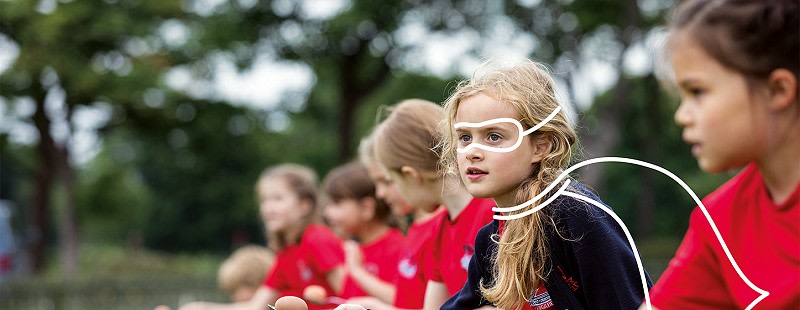- About Cargilfield
- Admissions
- Learning for the 21st Century
- Nursery
- Pre Prep
- Upper School
- Boarding
- News
- Essential Information
- Former Pupils
- Contact Us
Head Injuries and Concussion
Before I started working at Cargilfield as the school nurse, I knew children bumped their heads all the time! I didn’t quite understand the impact it could have though…
Concussion is rare, but it is an issue that can have a huge lasting effect on a person. Post-concussion syndrome can cause headaches, dizziness, irritability, insomnia, loss of memory and concentration; these symptoms can last from weeks to months after the initial injury. One concussion usually does not cause any lasting damage, however a second injury within 12 months of the first has been shown to cause more lasting damage, such as impaired memory and concentration and lasting personality changes. Several former English rugby players have launched a legal case against rugby authorities for alleged negligence in relation to dementia caused by playing and receiving head injuries that they feel were not treated appropriately at the time.
The diagnosis of concussion has improved over the last few years and as such, more are being picked up. The long-lasting effects are also now being seen in older people, notably senior rugby and football players. Therefore, this increase in diagnosis will hopefully help with the management of head injuries and avoid any long-lasting effects.
This is all the more important in children; early intervention in management of head injuries is imperative to protect the developing brain. Educating children on the importance of reporting issues is key in this. Training is vital for all staff involved with sport, and all those staff who supervise play time.
Concussion is not always caused by a hard knock to the head. It can also result from a whiplash injury, where the brain moves in the skull. Minor symptoms can include slight dizziness at the time of the incident, a headache and blurred vision. Serious symptoms would include being knocked out completely, vomiting and memory loss.
As an example of how concussion is handled in professional sport, rugby is obviously a good one to look at. In professional/elite rugby, if a player has clear signs of concussion, or suspected concussion, they are removed from play and will not return. They will then follow a very regimented gradual return to play protocol (GRTP). If there is head contact but the diagnosis is not clear, the player is removed from play and must have a head injury assessment (HIA) done. This was made law in 2015.
In amateur rugby, there is no such requirement. However, governing bodies do use the motto: ‘If in doubt, sit them out’. Anyone under the age of 18 must rest for a minimum of 2 weeks, then start the GRTP where concussion is diagnosed.
At Cargilfield, we are trying hard to implement the recognition and safe management of head injuries. There is a Concussion Policy, adapted from the Scottish Rugby Union (SRU) concussion policy. Coaches and teachers are encouraged to send head injuries to me for assessment. Parents are informed and if the diagnosis is unclear, I would keep children off games for 24-48 hours, then re-assess them before allowing them back to games. If they have any severe symptoms, I would advise them to be seen in hospital for a formal diagnosis. Once they have a formal diagnosis of concussion, they are off games for 2 weeks, then they begin the GRTP in a very prescriptive way.
I feel that keeping children’s heads safe is one of the most important things we must all do. We all need to remember ‘If in doubt, sit them out’!
Scottish Rugby Concussion guidelines can be found here.
Posted on

Join us on Friday 2 May between 9am and 12pm to discover what makes Cargilfield truly special.